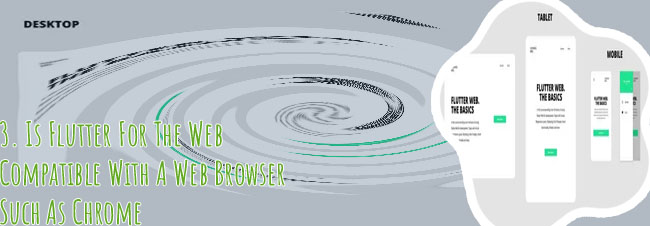Flutter web frontend

What exactly is Flutter?
You can have a feature-rich web app in a short time if you use Flutter. There are many best app development frameworks for your web app development but picking one can be a cumbersome job. So, we at Technource will make you aware of some benefits of using Flutter for your business. Many companies use Flutter due to these benefits, moreover, you can check the best Flutter web app example for more detail. Flutter for web development Limited web features: Flutter Web does not support all the features and capabilities of the web platform. For example, Flutter web apps cannot access some browser APIs, such as geolocation, camera, microphone, etc. Flutter web apps also have limited support for browser history, bookmarks, deep linking, etc. To access these features, you may need to use platform channels or plugins that communicate with native code or JavaScript.
Use flutter for web development
For rendering itself onto a canvas provided by the platform, Flutter leverages Skia. The engine enables the Flutter UI to be launched on almost any platform. To put it another way, the development process is greatly streamlined since UI no longer needs to be modified in order to be transferred to a platform. Sign up or log in In addition, Flutter benefits from a solid support and continuous development due to Google’s reliance on the framework. Google’s dedicated team of developers promptly addresses any bugs or issues with Flutter. Additionally, Google uses Flutter to develop the UI and apps for its multi-platform operating system, Google Fuchsia. This level of investment assures Flutter users that the framework will remain relevant and supported in the long run.Why do businesses choose Flutter for web applications?
The web itself is a flexible platform, but Flutter is ideal for building web applications like PWAs or SPAs and bringing your existing mobile app to the web. How is Flutter for Web different? When building for mobile, Flutter uses the Dart compiler to convert your Dart code into native machine code that will run on the device platform, along with a custom rendering engine to display your UI inside a mobile app. Flutter does not use the native UI elements, like you would find in React Native, nor does it use Web Components like Ionic. Instead, Flutter offers its own library of UI Widgets.